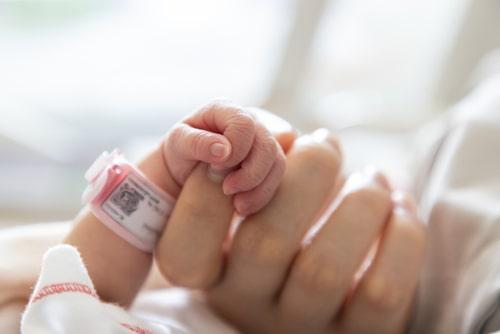Chicago, IL 60601
FREE CONSULTATIONS 312-462-4200
TOLL FREE 833-462-4200
What Does Neonatal Hypoxic-Ischemic Encephalopathy Do to the Brain?
 Parents will want to make sure their children are safe and healthy at all times, but unfortunately, birth injuries can have a significant impact on a child's health and well-being. In some cases, these injuries may lead to permanent disabilities or health issues that may affect a child for the rest of their life. Hypoxic-ischemic encephalopathy (HIE) is one of the most serious birth injuries that can occur, and it can lead to cerebral palsy or other serious conditions. Parents will need to understand how HIE can affect a child's brain, the treatments that may be used to address this condition, and the ways they can ensure that their child receives the proper care in the years to come.
Parents will want to make sure their children are safe and healthy at all times, but unfortunately, birth injuries can have a significant impact on a child's health and well-being. In some cases, these injuries may lead to permanent disabilities or health issues that may affect a child for the rest of their life. Hypoxic-ischemic encephalopathy (HIE) is one of the most serious birth injuries that can occur, and it can lead to cerebral palsy or other serious conditions. Parents will need to understand how HIE can affect a child's brain, the treatments that may be used to address this condition, and the ways they can ensure that their child receives the proper care in the years to come.
Understanding Neonatal Hypoxic-Ischemic Encephalopathy
Neonatal HIE is a condition that can occur during childbirth if the child experiences a lack of oxygen to the brain. Complications during pregnancy or birth may affect a child's ability to receive sufficient oxygen, and these may include high blood pressure during pregnancy (preeclampsia), infections, or issues that affect the flow of blood and oxygen in the placenta or umbilical cord.
The severity of the condition can vary depending on how long the baby experiences oxygen deprivation and how quickly medical intervention is provided. HIE can lead to a wide range of developmental and neurological problems.
How HIE Affects Infants
When an infant experiences HIE, brain cells may die due to a lack of oxygen. This occurs because blood is not flowing to the brain properly. However, when blood flow resumes, this can cause the toxins released by dying brain cells to spread throughout the brain, causing damage to other brain cells. This can create a chain reaction that may lead to extensive brain damage.
Depending on the severity of the condition, a baby may experience mild to severe symptoms, including seizures, breathing difficulties, decreased heart rate, feeding problems, or poor reflexes. A child may display unusual levels of alertness or activity, including either a lack of energy and a failure to respond to sights and sounds or a high level of alertness and reaction to stimulation. Because HIE involves a lack of blood flow, dysfunction in other organs or bodily systems, such as the heart, lungs, liver, or kidneys, may be a sign that brain damage has also occurred.
In severe cases, HIE can lead to permanent brain damage that affects the child's physical and cognitive development. A child may experience motor disabilities, intellectual disabilities, learning disabilities, and behavioral problems.
Diagnosing and Treating HIE
Neonatal HIE is typically diagnosed in the first few hours or days after delivery. Doctors may use a series of tests, including blood tests, electroencephalography (EEG), ultrasounds of the head and brain, MRIs of the brain, and lumbar punctures that test cerebrospinal fluid for infections.
Timely intervention is critical to address HIE and prevent further damage from occurring. There are several treatment options available. Hypothermia therapy is one of the most effective treatments, and it involves cooling the baby's body temperature, which can prevent toxins from spreading throughout the brain and damaging brain cells. A child may also be provided with oxygen, and a ventilator may be used to assist with breathing. Medications may be administered to address seizures, infections, blood pressure, or other health issues.
What Parents Can Do
Parents will need to be aware of the signs and symptoms of HIE and seek medical attention immediately if they notice any abnormalities in a baby. Early intervention can have a significant impact on the child's recovery and long-term outcome. It is also important to work closely with healthcare providers to develop a comprehensive care plan that will monitor a child's condition and provide appropriate therapies to improve the child's quality of life and minimize long-term effects. Ongoing treatment may include physical therapy, occupational therapy, and other forms of care.
Contact Our Chicago HIE Injury Lawyers
If your child has experienced hypoxic-ischemic encephalopathy or other injuries during childbirth, you will need to make sure you will be able to provide the care they need throughout their lifetime. At Birth Injury Law Alliance, Ltd., our Illinois infant brain injury attorneys can provide guidance on the resources that may be available to your family, and we will work to ensure that you will be able to meet your child's needs in the years to come. To learn how we can help with your case, contact us at 312-462-4200 and set up a free consultation.





